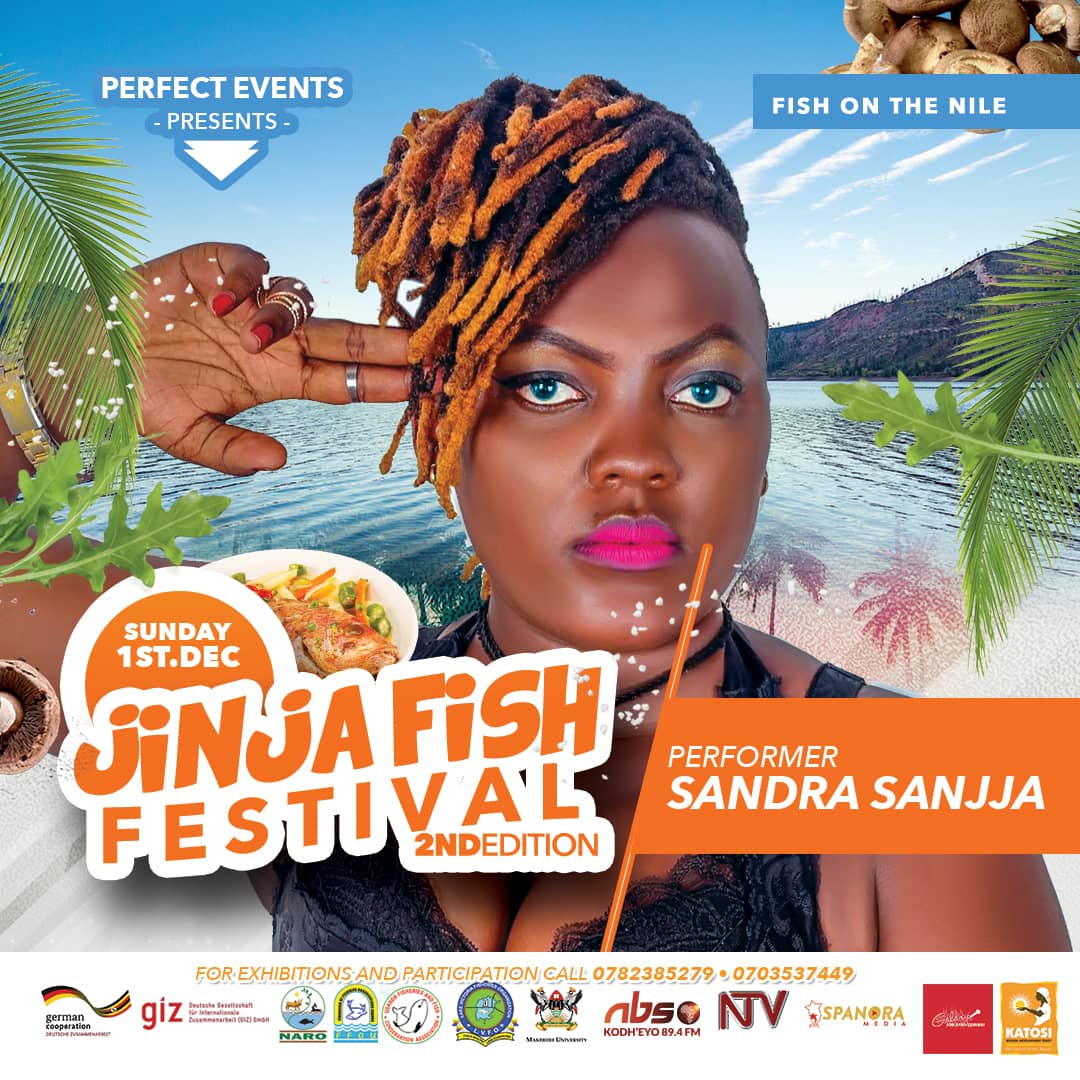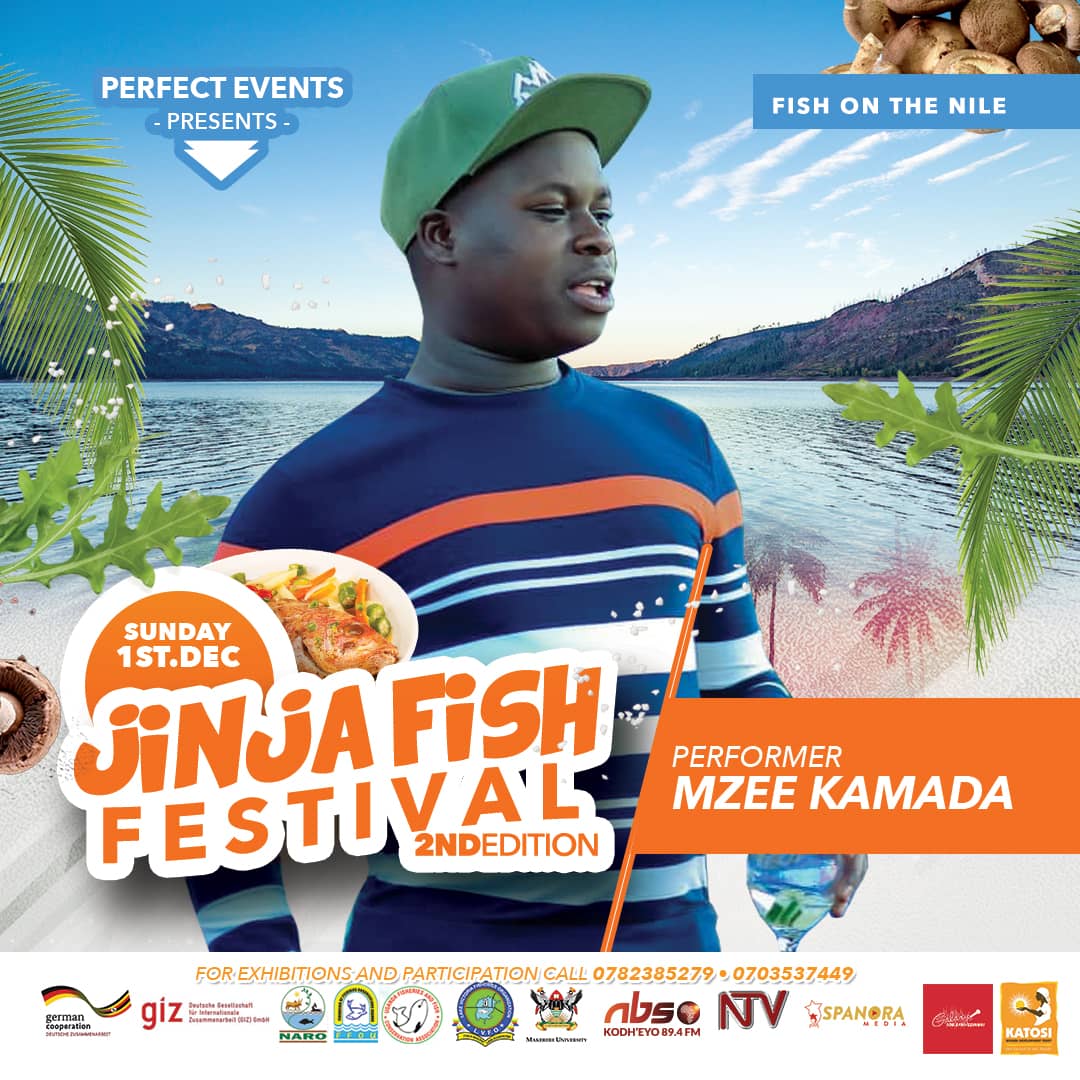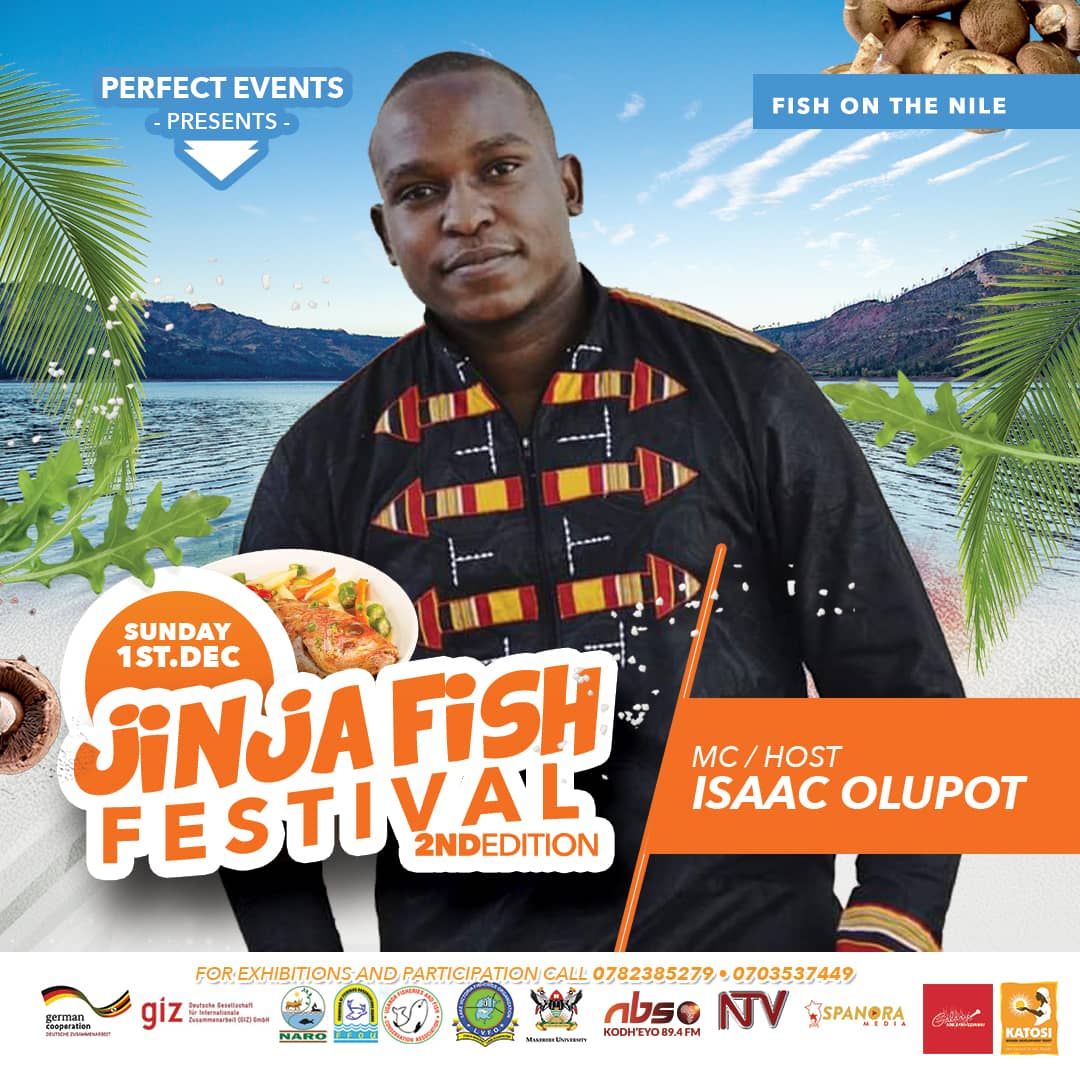

Jinja Fish Festival: Sustainable Fisheries improving women and youths livelihood
Uganda is the youngest (16yrs) and 3rd most rapid growing population in the world (74m by 2040). Ensuring adequate employment and healthy livelihoods for her population remains topmost priorities for the government.
Fisheries contribute significantly to Uganda’s economic growth (12% Agricultural GDP; 2.5% on the whole), employment (1.2m people) and Nutrition (50% of animal protein).


While a production target of 300,000MT pa is set for 2020, the National Fisheries and Aquaculture Policy (2017) has further projected Uganda’s production capacity at 1.7m MT pa based on available resources. With an increased value of fish in the recent past, it is anticipated that fish will collect more revenue as compared to all other non-oil commodities if set capacities are attained
“The gender dimensions of the entire fish value chain, beyond youth and women as wild fish traders and youth and women as consumers, is well-recognized in Uganda. The youth are crucial and their effective functions should be enhanced by youth and women empowerment programmes, access to credit facilities and resources, training programmes and enhancing their roles in decision making processes.



In the case of traditional hunting of fish youth and women could be more involved by adding value to the fish caught in-order to get more profits than the current trends where it is sold only fresh and smoked. Also in the wild fisheries there is a segment of the untapped potential of ornamental fish trade in Uganda yet it is multibillion dollar business elsewhere in the world for example Asia.
In the event of fish farming the youth and women can improve their livelihood and coming out of poverty by engaging all the way in the fish value chain including management of production( feeding the fish ) ,harvesting , processing , trade and value addition .
Fish can be raised without the need to acquire land done for pond systems through back yard farming in aquaponics systems and tanks with technology currently under development by researchers this will go a long way to alleviate poverty as the youth and women rarely possess land titles” says Nattabi J.K (PhD) Department of Zoology,Entomology and Fisheries Sciences, Makerere University)
Sustainable fisheries when inclusive can push women and youth out of poverty. This means participation and growing the sector together. At production women contribute less but youth form most of the barias in active fishing. Although they may be exploited at the baria level they earn a living. If organized and supported to fish sustainably the benefits can increase. Over 60percent women are at the artisans processing level and their products are gaining market ie Mukene, fish sausages, fish maws among others. Given support in value addition through training and equipment and market access they can increase their incomes and move out of poverty while also contributing to the economy, says Dr. Rukuunya Edward the Director Fisheries Resources at Ministry of Agriculture, Animal Industry and Fisheries.
The Jinja Fish Festival with the support of GIZ – Responsible Fisheries Business Chain Project will offer an opportunity for youths, women and the entire business community to explore through the different exhibitions by the different stakeholders in the fishery and they will be able to identify opportunities of investment, capacity building and benchmarking among others which are key aspects that can boost their livelihood out of poverty. Not only will the festival tackle poverty issues but the public will learn about Nile perch fishery which currently fetches the highest foreign exchange towards Uganda’s economy.
The public will also learn about the different fish species including the Nileperch, silver fish (Mukene) among othersgenerally considered as very healthy food being rich in protein, omega-3, fat acids and micro nutrients and therefore a valuable contribution to the population diet as well learn how to supportresponsible fishing that is sustainable and legal. Fishermen and experts in the field will share their knowledge with the public on a number of subjects including fish processing, transportation among others. The festival will be a good mixture of celebrating and learning about sustainable fisheries with delicious fish menu, entertainment from Uganda’s leading artists like Rema Namakula, Sandra Sanjay, Mzee Kamada among others, atiststoo as influencers of community behavior will re-echo the voice of responsible fishing through musical performances.
There will be lots of awards to winning schools both primary and secondary which will be participating in sustainable fisheries awareness quiz, dance, music and art competitions. The Festival has been organized by Perfect Events with funding support from GIZ – Responsible Fisheries Business Chain Project (RFBCP) together with the organizing partners : Directorate of Fisheries Resources (DFiR),Uganda Fish Processors and Exporters Association (UFPEA), Federation of Fisheries Organizations of Uganda (FFOU), Katosi Women Development Trust (KWDT), Makerere University Department of Zoology, Entomology and Fisheries Science, National Fisheries Resource Research Institute( NAFIRRI), Association of Fisheries and Lake Users of Uganda (AFALU) and Uganda Fisheries and Fish Conservation Association (UFFCA).








